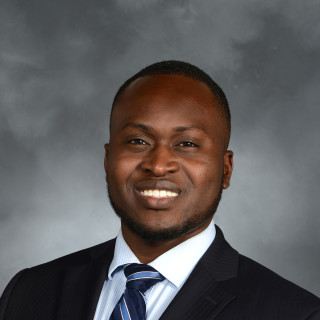
Words without action are meaningless in times of crisis. The cumulative events of the past month and subsequent outpouring of frustration represent the latest chapter in the ongoing history of racial injustice against Black Americans. This troubled history spans across far too many aspects of American life and pervades every institution of society. As the institution sworn to maintain the well-being of the populace, the American health care system must acknowledge its own stake in this crisis.
Our health care system must acknowledge the crisis of past and present racial violence manifesting as disparate outcomes for Black patients (1). It must acknowledge the crisis of rampant inequality in medical education which continues to plague medical trainees (2). It must acknowledge the crisis of a clinician workforce that still does not nearly represent the diversity of those seeking care (3). This is not a crisis of hurt feelings and misunderstandings, but rather one of countless black and brown bodies who have been misdiagnosed, mistreated, and marginalized by the very profession that swears to first do no harm.
In light of the scope of the present plight, there is no doubt that mere words of solidarity are insufficient. While the swift condemnation of blatant racial violence is the appropriate response, in the absence of genuine and sustained dedication to progress, it amounts to cold comfort. To stand in true solidarity with Black Americans, our health institutions must demonstrate a genuine dedication to dismantling a culture plagued by discrimination, both conscious and subconscious. How can a health institution claim to stand with us unless recruitment and retention of Black medical trainees is a priority? Or when the leadership lacks diverse representation? Or when Black patients continue to experience worse outcomes than their white counterparts?
In any relationship, the acknowledgement of previous wrongdoing serves to build trust and credibility. The relationship between the American health care system and Black America is no different. The extensive and well-documented history of abuse, malpractice, and unjust experimentation perpetrated against black bodies in the name of medical science is reprehensible (4). Such historic acts merit formal apology. Period. The precedent for such accountability has been set recently by colleges apologizing for participation in the enslavement of Africans and their descendants (5, 6). Medical schools and health centers that participated similarly need to follow suit. While the perpetrators of these sins have long passed away, the specters of their iniquities continue to haunt us. Those health institutions with a sordid history of racism cannot claim to support the lives of Black Americans presently unless they are willing to apologize for the past.
True solidarity with Black communities must include a relentless dedication to increasing the number of Black clinicians and leaders in health care (7). Whether this means the development of new initiatives or partnership with existing programs (8), such efforts must be proactive and sustained. There is no role for passivity in this matter. Pipeline programs to introduce Black students of all ages to the health care profession must be supported. Furthermore, it must be ensured that the talents of Black clinicians presently in practice are encouraged to blossom without inhibition (9). It is the responsibility of the institution to create an environment for these individuals to thrive. Unfortunately, far too many organizations neglect this responsibility in favor of lip service to notions of diversity and inclusion. This is unacceptable. Black clinicians and leaders must be given agency to drive institutional change rather than merely included.
To speak out against overt racism while failing to address its many other manifestations is more than just disingenuous. To do so disrespects the struggles of the preceding generations and undermines the struggles of the present time. A true dedication to progress requires partnership, and true partnership requires genuine communication followed by appropriate action. To this end, I challenge health care leadership to offer us more than boilerplate email statements, social media posts, and hashtags. Instead, we need leadership that will engage Black communities with a demonstrable dedication to equity. We need leadership that will commit time and resources to the development of pipeline programs to the benefit of the next generation of diverse leaders. We need leadership with the courage to confront engrained elements of institutional culture which promote micro- and macroaggressions against minorities.
Saying that Black Lives Matter is not a statement, but rather a call to action. In this time of turmoil, our country’s health institutions owe us sincere assurances of their commitment to our Black lives.
#JusticeforAmaud #JusticeforBreonna #JusticeforGeorge
References
- Key Facts on Health and Health Care by Race and Ethnicity. Artiga & Orgera. Kaiser Family Foundation. 2019
- Differences in Narrative Language in Evaluations of Medical Students by Gender and Under-represented Minority Status. Rojek et al. Journal of General Internal Medicine. 2019
- An American Crisis: The Lack of Black Men in Medicine. Laurencin & Murray. Journal of Racial and Ethnic Health Disparities. 2017
- Medical Apartheid: The Dark History of Medical Experimentation on Black Americans from Colonial Times to Present. Washington, H. 2007
- Wake Forest University Apologizes for its Past Role In Slavery. Young, W. Winston Salem Journal. 2020
- College of William & Mary Apologizes for History of Slave Labor, Racism. O’Donnell, G. Insight into Diversity. 2018.
- Minority Physicians’ Role in the Care of Underserved Patients: Diversifying the Physician Workforce May be Key in Addressing Health Disparities. Marrast, L. et al. JAMA Internal Medicine. 2014.
- Can a Strategic Pipeline Initiative Increase the Number of Women and Underrepresented Minorities in Orthopaedic Surgery? Mason, B. et al. Clinical Orthopaedics and Related Research. 2016
- Why Black Doctors Like Me Are Leaving Faculty Positions in Academic Medical Centers. Blackstone, U. 2020
Kwadwo Adu Owusu-Akyaw is an orthopaedic surgeon. He was featured in the Black Men in White Coats Mini-Documentary Series and previously contributed to Doximity with the Op-Med, "A Letter to African-American Medical Students and Resident-Physicians."






